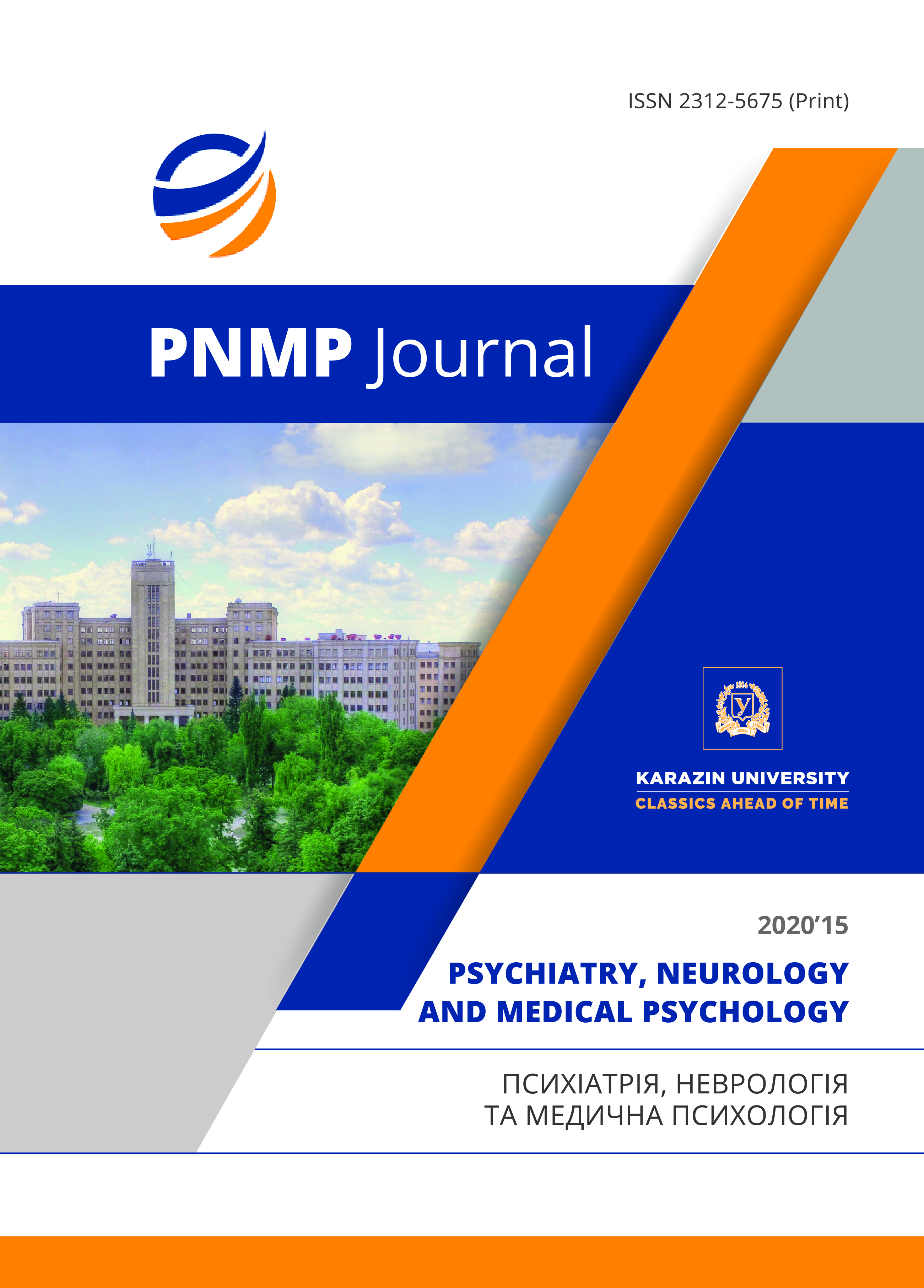Influence of metabolic syndrome on the result of ischemic cardioembolic stroke due to atrial fibrillation
Abstract
Metabolic syndrome is a complex of metabolic, hormonal, and clinical disorders, which are based on insulin resistance and compensatory hyperinsulinemia, abdominal obesity, disorders of lipid, purine metabolism, and arterial hypertension, is a combination of factors, each of which, both individually and in combination with others, has a significant effect on the risk of occurrence and the characteristics of the course of cardiovascular diseases, in particular ischemic strokes. The clinical feature of metabolic syndrome is the frequent development of paroxysms of atrial fibrillation, as a manifestation of the late stages of "hypertensive heart", which is illustrated in a number of large-scale population studies on the relationship between metabolic syndrome and the risk of atrial fibrillation. Our work raises the question of the features of the relations between metabolic syndrome and ischemic stroke caused by atrial fibrillation. Information concerning the qualitative and quantitative characteristics of the components of the metabolic syndrome with a breakdown of the clinical features of ischemic cardioembolic stroke in persons with the pathology under discussion, their natural course, the prognosis of the outcome, and sensitivity to treatment is very low.
The article presents the results of the analysis of factors that make it possible to predict the course and outcome of acute ischemic stroke caused by atrial fibrillation against the background of metabolic syndrome. In order to determine the prognostic criteria for the outcome of cardioembolic stroke, 86 patients were examined, 41 patients were diagnosed with a cardioembolic stroke on the background of metabolic syndrome, 45 patients with cardioembolic stroke without metabolic syndrome. The analysis was based on the construction of correlation pleiades. A similar factor structure of indicators in both studied groups of patients with cardioembolic stroke indicates the same nature of changes in the state against the background of acute vascular catastrophe. A more severe course of the disease, based on the data of correlation analysis and data obtained by comparing indicators, is noted in the presence of the metabolic syndrome. Prognostically significant factors that allow predicting the course and outcome of cardioembolic stroke are the degree of a motor deficit on a five-point scale, total cholesterol, high-density lipoproteins, blood glucose, persistent atrial fibrillation, degree of stenosis of the internal carotid arteries, CHA2DS2-VASc scale indices.
Downloads
References
Areva G.T, Sovetkina N. W., Ovsyannikova N.A. [et al.] Comorbid and multimorbid states in geriatric (review). Geriatric success. 2011, Vol. 24 no. 4, pp. 612–619. [in Russ.]
Vertkin A.L, Skotnikov A.S. Comorbidity. 2013, no. 6, pp. 66–69. [in Russ.]
Kate Nadal Ginard. When one interferes with the other – comorbidity on the topic of the day. The new medicine of century. 2012, no. 6, pp. 22–24. [in Russ.]
Klimenko V.A., Romanova A.S. Why it is not possible to achieve control of bronchial asthma: comorbid conditions. Clinical immunology. Allergology. Ifectology. 2012, no. 2, pp. 8-10. [in Russ.]
Tanashyan M.M., Orlov S.V., Domashenko M.A. [et al.] Methabolic syndrome and ischemic stroke. Clinical neurology. 2007, no. 3(1), pp. 5-11. [in Russ.]
Béjot Y., Daubail B., Giroud M. Epidemiology of stroke and transient ischemic attacks: Current knowledge and perspectives. Rev Neurol (Paris). 2016, Vol. 172(1), pp. 59–68. DOI: 10.1016/j. neurol.2015.07.013.
Boyd C.M. Clinical practice guidelines and quality of care for older patients with multiple comorbid diseases: implications for performance. JAMA. 2005, Vol. 294(6), pp. 716– 724.
Caughey G.E., Vitry A.I., Cibert A.L. Prevalence of comorbidity of chronic diseases in Australia . BMC Public Health. 2008, no. 8, p. 221.
Feinstein A.R. Pre-therapeutic classification of comorbidity in chronic diseases. Journal Chronic Diseases. 1970. Vol. 23(7), pp. 455–468. DOI: 10.1016/0021-9681(70)90054-8
Kholodenko B.N., Bruggeman F.J., Sauro H.M. Mechanistic and modular approaches to modeling and inference of cellular regulatory netwoks. Systems biology: Definitions and perspectives. 2007; Springler–Verlag: 143–159.
Marti S. Body weight and comorbidity predict mortality in COPD patients treated with оxygen therapy . Eur. Respir. J. 2006. Vol. 27(4), pp. 689–696.
Iso H., Sato S., Kitamura A. [et al.] The risk of ischemic heart disease and stroke among Japanese men and women. Stroke. 2007. Vol. 38, pp. 1744–1751.
Kurl S., Laukkanen J.A., Niskanen L. [et al.] Metabolic syndrome and the risk of stroke in middle aged men. Stroke. 2006. Mar. 37 (3), pp. 806–881.
Liu L, Zhan L, Wang Y. [et al.] Metabolic syndrome and the short-term prognosis of acute ischemic stroke: a hospital-based retrospective study. Lipids Health Dis. 2015. Vol. 14, p. 76. DOI: 10.1186/s12944- 015-0080-8.
McNeil A.M., Schmidt M.I., Rosamond W.D. [et al.] The metabolic syndrome and 11 year risk of incident cardiovascular disease in the atherosclerosis risk in communities study. Diabetes Care. 2005. Vol. 3, pp. 22-25.
Sharipova G.K., Saidova M.A., Zhernakova Yu.V. [et al.] The influence of metabolic syndrome on heart abnormalities in patient with arterial hypertension. Almanac of clinical Medicine. 2015, no. 1(1), pp. 102–10. [in Russ.] DOI: 10.18786/2072-0505-2015-1-102- 110.
Van den Akker. Multimorbidity in general practice: prevalence incidence and determinants of cooccuring chronic and recurrent diseases . J. Clin. Epidemiolog. 1998, no. 51, pp. 367–375.

